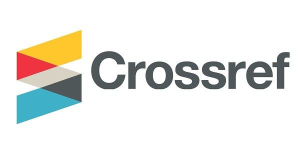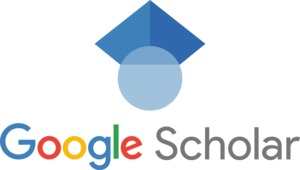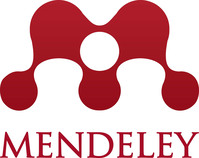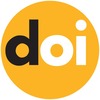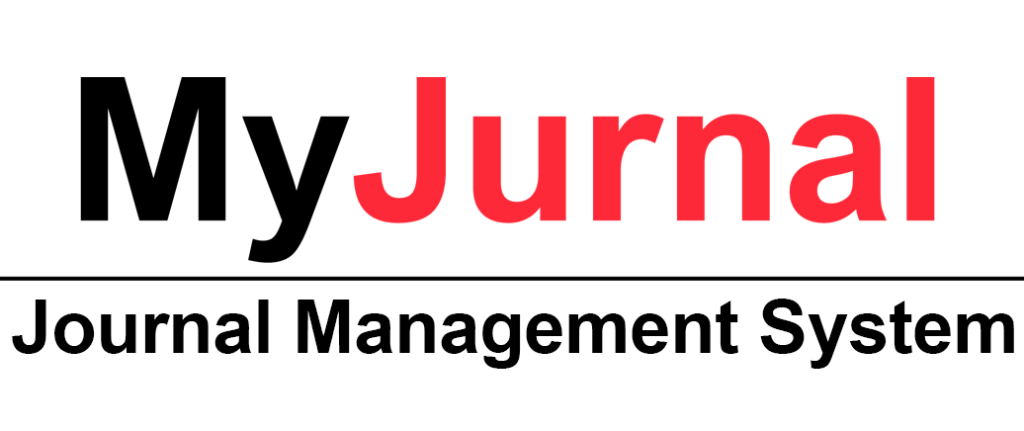The Challenge of Curriculum Integration for Islamic Universities: Setting the Principles of Curriculum Integration
DOI:
https://doi.org/10.31436/ijes.v4i1.84Abstract
The Muslim world has witnessed remarkable developments in its educational system in the last four decades. Such developments include the founding of schools, establishment of universities, publication of journals, and organization of conferences and production of books, for the purpose of Islamization. It is obvious that knowledge is central to all these Islamizing initiatives as its integration is fundamental to the entire process of Islamization. Consequently, there are contributors to the curriculum integration level of Islamization by Muslim scholars across the world who have attempted to Islamize knowledge in their various areas. However, there is little attention to the professional requirements for integration of knowledge for Islamization especially at the university level. That informed the question, whose job is it to integrate the curriculum for Islamic universities? The purpose of this paper is to address this question. Utilizing a combination of the analytical method and creative synthesis, this paper is grounded in the scholarship of pragmatist philosophical foundations of the curriculum. It is hoped to provide guiding principles to the practice of integrating knowledge for Islamization. Such principles for curriculum development for Islamic universities, may also curb the growing trend of curriculum integration without the requisite professional curriculum-making considerations, portraying the Islamization of Knowledge (IOK) project as unsystematic.
Metrics
References
Publishing House and IIIT.
Abu Sulayman, A. H. (1994). Islamization: Reforming Contemporary Knowledge.
Herndon, VA: IIIT.
Abu Sulayman, A. H. (1989). Islamization of Knowledge: General Principles and
Workplan. Herndon, VA: IIIT.
Adebayo, R.I (n.d.) A Survey on the Global Success of the Islamization of Knowledge
Programme with Particular Reference to Nigeria.
Al-Alwani, T. J. (1995). Islamization of Knowledge: Yesterday and Today. AJISS, 12 (1):
81-101.
Al-Attas, S. M. N. (1978). Islam and Secularism. Kuala Lumpur: ABIM.
Al-Attas, S. M. N. (1980). The Concept of Education in Islam: A Framework of an
Islamic Philosophy of Education. Kuala Lumpur: ABIM.
Amin, E. M., Yusof, S.A. & Haneef, M.A. (2013). The Effectiveness of an Integrated
Curriculum. The Case of IIUM. Centre for Islamic Economics and Finance.
Faculty of Islamic Studies, Qatar University.
Andrew, M.D. (1990). Differences between graduates of 4-year and 5-year teacher preparation programs.Journal of Teacher Education, 41 (2),45-51.
Beane, J. A. (1997) Curriculum integration: Designing the core of democratic education.
New York: Teachers College Press.
Beane, J. A. (2005). A reason to teach: Creating classrooms of dignity and hope.
Portsmouth, NH: Heinemann.
Che Noraimi, H. & Langgulung, H. (2008), Islamic Religions Curriculum in Muslim
countries. The Experiences of Indonesia and Malaysia, Bulletin of Education and
Research June 30:1(1-19).
Dressel, P."The Meaning and Significance of Integration." In The Integration of
Educational Experiences, 57th Yearbook of the National Society for the Study of
Education,edited by Nelson B. Henry. Chicago: University of Chicago Press,
1958, 3-25.
Drake, S. M. (1998). Creating integrated curriculum: Proven ways to increase student
learning. Thousand Oaks, CA: Corwin Press.
Drake, S. M., Burns, R. C. (2004). Meeting standards through integrated curriculum.
Alexandria, VA: Association for Supervision and Curriculum Development.
Etim, J. S. (2005). Curriculum integration K-12: Theory and practice. Lanham, MD:
University Press of America.
Fraser, D. (2000). Curriculum integration: What it is and is not. set: Research
Information for Teachers, 3, 34−37.
Fraser, D., & Charteris, C. (1998, October). What is curriculum integration and why do
teachers need to know? Paper presented at the New Zealand Teacher Education
conference, Hamilton.
Fraser, D., & Paraha, H. (2002). Curriculum integration as treaty praxis. Waikato Journal
of Education, 8, 57−70.
Fraser, D. (2011). Curriculum Integration, In (n.e. n.d.)Curriculum Integration, pp. 10-
32.
Jacobs, H. H. (1993). Mathematics integration: A common-sense approach to curriculum
development. Arithmetic Teacher, 40(6), 301−302.
Lake, K. (2011). Integrated Curriculum. School Improvement Research Series. pp. 49-76.
Loepp, F. L. (2007), Models of Curriculum Integration, Journal of Technology
Studies, 22 (5)9-30.
Mohammed, M.O. (n.d) “Integrating at Turath al-Islamic to Modern University
Curriculum: Issues and the Need for Benchmark”. Islamic Economics Education
in Southeast Asian Universities, pp. 75-91.
Murdoch, K., Hamston, J. (1999). Knowing me, knowing you: Exploring identity and
difference through an integrated curriculum. Burwood, VIC: Dellasta Publishing.
Murdoch, K., Hornsby, D. (1997). Planning curriculum connections: Whole-school planning
for integrated curriculum. South Yarra, VIC: Eleanor Curtain Publishing.
Naqi, S.A. (1987). “Implementation of the Recommendation of the Four World
Conferences on Muslim Education in Bangladesh: Problems and their Solutions”
Muslim Education Quarterly, 4 (4) 47-49.
Paterson, J. (2003). Curriculum integration in a standards-based world. Middleground:
The Magazine of Middle Education, 7(1), 10−12.
Pring, R. (2006). Curriculum integration. Journal of Philosophy of Education, 5(2),
170−200.
Rosnani, H. (1996). “Islamization and the Role of the Department of Education,International Islamic University”. Paper presented at the Seminar on the Islamization of Knowledge, International Islamic University Malaysia, 22 November, 1996.
Rosnani, H. (1997). The Reconstruction of an Islamic-Based Teacher Education Programme, in Ashraf, A (ed) Muslim Education Quarterly,vol. 14, No. 2,Stoughton: King Abdul-Aziz University.
Rosnani, H. & Imran, R. (2000). Islamization of Knowledge: A Comparative Analysis of
the Conception of Al-Attas and al-Faruqi. Intellectual Discourse, 8 (1): 19-44.
Rosnani,H. (2004). Educational Dualism in Malaysia: Implications forTheory and Practice. Kuala Lumpur: The Other Press
Rosnani, H. (2005).“Rethinking Islamic Education in Facing the Challenges of the Twenty-first Century”.American Journal of Islamic and Social Sciences, 22 (4) 133-147.
Rosnani, H (2007). “Intellectualism in Higher Islamic Traditional Studies: Implications for the Curriculum”. American Journal Of Islamic and Social Sciences.24(3).
RosnaniHashim (Ed.).(2010).The Educational Thought of Muslim Scholars in theMalay Archipelago and Islamic Educational Reform.Kuala Lumpur: The Other Press.
Rosnani, Hashim (2011) Internationalisation of Contemporary Islamic Higher Education
and Ummatic Development: A Case Study of the International Islamic University
Malaysia (IIUM). Paper presented at the International Seminar on Reforms in
Islamic Higher Education in Meeting Contemporary Challenges, Nagoya
University 30th- 31stJuly 2011.
Rosnani, H & Ssekamanya, S. (2013), Islamization of Human Knowledge in Theory and
Practice: Achievement, Challenges and Prospects in the IIUM Context, IIUM
Journal of Educational Studies, 1 (1)1-12.
Rosnani, H. (2014). Higher Education Curriculum Development for Islamization of
Knowledge. Islamic Economics Education in Southeast Asian Universities. Pp.
21-73.
Ssekamanya, S. A., M Sahari, N., Nik A. Hisham, M.S., Ismail, N.A.H. & Abdullah, A.
S. (2007) "Islamization of contemporary knowledge: analyzing the experiences of
selected scholars at the IIUM." Unpublished research report.
Ssekamanya, S. A., Suhailah H. & Nik Ahmad H. I. (2011)."The experience of
Islamization of Knowledge at the International Islamic University Malaysia:
successes and challenges." In New Intellectual Horizons in Education (ed.
Yedullah Kazmi). Gombak: IIUM Press, pp. 91-110.
Ssekamanya, S. A. & Rosanin, H. (2012) Islamization of contemporary knowledge and
reform of education curriculum. In intellectual, Spiritual, Leadership and Human
Knowledge Islamization Colloquium (ISLAHI-1), 30th November – 2nd
December, 2012, ISTAC, Kuala Lumpur (unpublished)
Siddiqi, M. N. Islamization of Knowledge. Reflections on Priorities. American Journal of
Islamic Social Sciences (28) 3: 15-33.
Tom, A.R.(1997).Redesigning Teacher Education. New York: State University of New York Press.
Virtue, D. C., Wilson, J. L., Ingram, N. (2009). L.E.S.S can be more! Middle School
Journal, 40(3), 4−11.
Wan Mohd Nor (2013). Islamization of Contemporary Knowledge and the Role of the
University in the Context of De-Westernization and De-Colonization. A
Professorial Lecture. Centre for Advanced Study on Islam, Science and
Civilization (CASIS). University Technology Malaysia, June, 2013.
Downloads
Published
How to Cite
Issue
Section
License
The Journal will own copyright to all published works and have the right of first publication, both in print and online, unless other arrangements are made with the Editors in advance. It is the author`s responsibility to ensure that where copyright materials are included within an article the permission of the copyright holder has been obtained beforehand.




